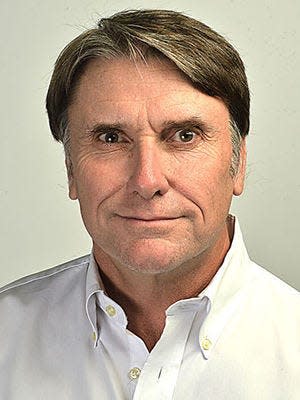Misinformation is amplified, because misinformation pays
It is the nature of science to be cautious, to want to prove things six ways from Sunday before making a pronouncement, and even then add a “check my work” element to any findings. Scientists back down at even a hint of uncertainty, and welcome challenges because getting it right in the scientific world transcends ego.
Just the opposite of politics.
Partisans with a Doctorate in Facebook can bellow from the mountaintop that up is down and down is up and continue to bellow unimpeded despite all evidence to the contrary. No such thing as water pollution (Cuyahoga River catches fire); no such thing as acid rain (mass die-offs of trees and fish on the western slope of the northern Appalachians); no such thing as climate change (where to start?).

Climate writer Bill McKibbon voiced frustration at the situation in a Substack article last week, noting accounts of people in Phoenix who have been hospitalized after bare skin has contacted scalding pavement.
“When I read things like this, I weep for the people involved, and I also weep at my own failure,” he wrote. “I’ve known about this crisis longer than almost anyone on earth, and I’ve done what I can think of to do, and some of it has been useful, but it hasn’t been enough.”
Except how can it ever be enough when one side needs decades of data to make its case for a warming climate, when the other can use one abnormally cold day in January as “proof” that there’s no such thing?
In 2009, climate-denying hackers obtained emails exchanged among scientists, including one who said he had used a “trick” to graph temperature change on a magazine cover. The trick was a method to make complicated climate data more easily understood, but of course the science-deniers, Sarah Palin among them, characterized it as an attempt to trick people into believing a climate-change hoax. Thus, evidence showing that temperatures were rising was twisted by know-nothings and hucksters into purported evidence that the whole thing was made up.
Most of the know-nothings and hucksters have been silent this summer. When presented with overwhelming evidence that they have been wrong, they simply walk away from the damage their own lies have caused as if nothing ever happened, moving on to the next project, such as claiming that the 2020 attempt to overturn an election was a hoax.
They may be back. If next summer is slightly less climatically cataclysmic as this summer has been, they may characterize that as evidence the climate isn’t changing after all.
Scientific America faces two problems. One, scientists make poor celebrities. Celebrities, such as we saw with, say, Dr. Oz, need to feed the beast almost daily lest they become irrelevant. To do that, you need to make brash, eyebrow-raising claims. Real science doesn’t work that way.
Real science is meticulous and mundane, not the stuff of big-band music and studio audiences. Misinformation is amplified, because misinformation pays.
Two, incrementalism makes poor clickbait. A fraction of a degree over a decade may be monumental and potentially catastrophic in the history of the planet, but social media doesn’t see it that way. One meme that shows we had a hot summer in 1936 too serves to undo in the public’s mind decades of research on the part of thousands of scientists.
Scientists, unfortunately, are inclined to give in to pushback. Scientists prefer harmony to controversy. When people became angry with “global warming,” the phenomenon was altered to “climate change.” By the looks of this summer, they were right the first time.
The public and scientific minds have often been at odds, as Copernicus, another bearer of an inconvenient truth, at least as far as the Church was concerned, could tell you. And has anyone been more vilified for saving more lives than Anthony Fauci?
This summer just might be the shot across the bow that puts most everyone on the same page. When the heat index at the Tehran airport hit 152, they had to redraw the heat index, which had previously toplined at 136. Eighteen months ago, Mayfield, Ky., was hit by devastating tornadoes that killed 57 people. This week the temporary housing serving tornado victims was threatened by flooding when the same area received up to a foot of rain.
As McKibbon intimates, it shouldn’t take a calamity a day to keep the issue in the public mind. When scientists are wrong, they will spend years trying to figure out why. When social media is wrong, its purveyors simply look around for a new issue to lie about. We need a way to make the latter as accountable as the former.
Tim Rowland is a Herald-Mail columnist.
This article originally appeared on The Herald-Mail: Know-nothings have had louder voices, to the world's detriment
